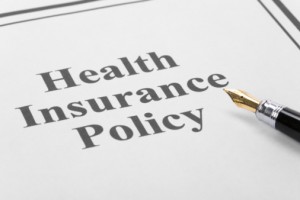BSN-prepared nurses in high demand in markets nationwide
The health care industry will witness some major changes within the next decade as the medical field adapts to new and updated government policies, a changing consumer market and a boom in technological advances that will enhance patient care practices.
Central to the evolution of the health care industry is the change and growth in its workforce, particularly nurses. As a field in high demand within the industry, nursing is becoming increasingly valuable in today’s health care market. As new health care trends emerge, nursing professionals will be at the forefront of this changing marketing.
Health Care Watch: Top Nursing Trends
A fluctuating economy and changing consumer patterns have driven the health care industry’s continuous progression. Many of these industry trends directly impact the nursing profession. Below are some of the most notable nursing trends to watch for in the next decade.
Changing Health Care Consumers
- Aging consumers: Americans are living longer in part due to advanced medical treatment and expanded patient care. In fact, statistics show that by 2020 more than 20 percent of the population will be ages 65 and older, and the fastest growing group will be those older than 85. As life spans increase, this expanding aging population places a strain on the health care market as they move into old age with many chronic and acute conditions that require continuing care.
- Diverse demographics: Not only are average health care consumers growing older, but their demographics are also expanding to create a broad mix of patients who have various racial, cultural and religious backgrounds that could affect the way nurses administer care.
- Educated consumers: The Internet provides patients with a wealth of information that allows them to become well-educated health care consumers. Patients are demanding to become more active participants in their personal and family health care decisions. Nurses must know how to facilitate a cooperative health care environment while educating patients on available treatment methods and patient care services.
Health Care Goes High-tech
Technology innovations are drastically reshaping patient care and giving medical professionals more advanced and strategic ways to treat their patients. From the digitalization of patient records for more efficient care management to the introduction of nanotechnology applications for a more effective and less invasive means of diagnosing and treating ailments, technology will play an influential role in the health care system throughout the next decade.

Nursing professionals entering the field as well as those currently working full-time must adapt to this increasingly high-tech work environment to provide patients with superior care.
New Health Care Regulations and Policies
The affordability and access to health care has been a hot topic in political circles for decades, and the United States Supreme Court recently passed President Obama’s historic Patient Protection and Affordable Care Act, which puts all Americans on track to receive health insurance. The Congressional Budget Office (a nonpartisan group) estimates that nearly 32 million Americans who would not otherwise have insurance will now have coverage because of the new law. A breakdown of this new consumer market shows that Medicaid will add nearly 17 million people and that 22 million will buy insurance from private firms on “exchanges” set up at the state level. Employer-sponsored health insurance plans are expected to decrease, causing a marginal offset to the gains in new health insurance consumers.
The goal of the new Affordable Care Act (ACA) is to make health care more affordable for all Americans. Although elements of the act such as the individual mandate would seemingly raise health insurance rates across markets nationwide, the ACA is counting on various strategies to help keep costs low for consumers and insurers. For example, although insurance companies must insure more people regardless of pre-existing conditions, they will also see an influx of healthy, young consumers entering the market due to the individual mandate regulations requiring their participation in the market. Their premiums will help to offset the cost of Americans who use more health care services.
This new and expanded consumer base will undoubtedly increase the demand on health care services in markets nationwide, specifically preventive medicine. To meet this new demand, a new nursing workforce must train in preventive care and in wellness and educational outreach.
Cost-cutting Measures Push for Managed Care
Health care makes up more than 15 percent of the nation’s gross national product (GNP), a measurement of the economic output generated by the nation’s enterprises. Since health care is such a fiscal behemoth, it is easy for a medical facility, such as a hospital to lose sight of budget constraints and forgo responsible spending. Keeping costs contained while providing exceptional care is essential to ensuring patients are not left with exorbitant bills and health insurance companies are not recouping huge losses. Managed care aims to ensure health care costs are kept in check while patients continue to receive quality care. Nurses have long served as leaders in health and wellness education and patient care. The nursing profession is often the first line of defense against high health care costs. Nurses determine how to organize work, and they participate in the development of treatment plans. Nurses also practice managed care by communicating with patients and facilitating an open treatment plan helping to keep costs low and care exceptional.
Health Care Markets Overcoming Nursing Shortage
Recent reports suggest the decade-long nursing shortage in the health care market is over for the time being.
According to a 2002 report in The New England Journal of Medicine, many hospitals and health care facilities started feeling the crunch in nursing personnel in the late 1990s as many registered nurses began leaving the profession because they felt overworked, underpaid and unable to provide quality patient care. In response, health care facilities began offering more benefits, signing bonuses, scholarships and tuition reimbursement to encourage people to enter the nursing field, which created a surge in new nursing professionals. The American Association of Colleges of Nursing reported that the number of people who graduated from entry-level baccalaureate nursing programs more than doubled between 2000 and 2010, and the number of full-time nurses grew by nearly 400,000 from 2005 to 2010.
According to many reports, the gains in adequate nurse staffing will likely be short-lived. A retirement boom is expected to hit by 2020, which will create a growing gap in the workforce. Changes in health care and patient care services will also likely put a strain on the demand for nursing professionals, which will create vast opportunities for individuals seeking a career in the medical field.
As new trends emerge in the health care market, nursing professionals who have a Bachelor of Science in Nursing (BSN) will be in high demand as health care facilities adjust to this changing marketplace. Registered nurses (RNs) who have a nursing diploma or an Associate Degree in Nursing (ADN) can enroll in King College’s RN to BSN online program to fast-track their nursing career and become valuable players in today’s health care market.
King has a reputation for academic excellence that goes beyond the classroom. Our online degree programs position graduates in line for exceptional career or continued education opportunities. In fact, more than 80 percent King graduate survey respondents indicate they are accepted to their choice of graduate or professional school. Make an investment in your future with an online degree from King.